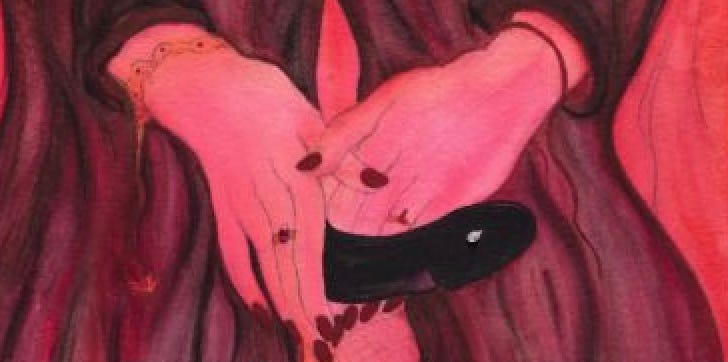Sex and the Mistress
Homewreckers, silicone, and dyke nights: An interview with Victoria Brooks
Silicone God, the debut novel from Victoria Brooks, opens with urgency:
I can’t keep reading this book.
I can’t stop reading it.
If I keep reading, I’ll die.
If I don’t, I’ll die.
It glows like a wedding ring.
A heavy symbol that is at once liberation and a trap.
Brooks novel probes—quite literally—deep questions of queerness and the boundaries of who gets to fuck, and when. They are no stranger to this, having authored both Mistress Ethics: On the Virtues of Sexual Kindness, and Fucking Law: The Search for Her Sexual Ethics. Silicone God is Brooks’ turn into the realm of speculative fiction, which follows our main character, Shae, who struggles to understand her desire for women while also habitually sleeping with married and unavailable men. It hinges on the question of who “mistresses” really betray when they’re fucking someone else’s husband.
“I wanted Mistress Ethics to be (at long last) a kind telling of the story of the mistress – a figure and archetype often silenced, historically (and still) demonised more than the married men who seek her, rarely understood, and building for her (and my former self) a manifesto of hope.” —Victoria Brooks
The dialogue between our main character, Shae, the silicone God Evaline (shortened to Eve), the all-encompassing Nez, who seems to be Eve’s little devil / angel on her shoulder, and lastly, the human girl Anemona, feels a bit like what it was like living inside my head in some of my twenties—as a self-confessed other woman and queer girl, fumbling my way through crumbs all the while fearing what real connection could be like.
Shae struggles with desire not just for sex but also to be fully liberated. We see this when she meets Anemona for the first time, who takes her namesake from the sea anemone. When I looked up the Latin, I learned it was a kind of flower—something delineating many lobes, or tentacles, much like the sprawling world of Time, which is “a future, a world that has not-yet-become,” in which Eve and Nez live. From this future, Eve tries to lure Shae away from her mistress habits, in part by birthing jellyfish from Shae’s body, as a consequence for pursuing her desires.
Anemona adores Shae but gets swept up into the world of Eve, too. Eve has her own struggles, feeling the pain of those scorned by the actions of the mistresses in the present world. In one line of the book, Nez scolds, “What do Eve and Rotten husbands have in common? They both hate the thing that they desire.”
In this interview, we discuss recovering from the life of the mistress, the role of confession in society, personal moments of queer awakening, and how emotional unavailability is not the only motivator behind the story of the other woman.
Keep reading with a 7-day free trial
Subscribe to Fuck, Marry, Kill to keep reading this post and get 7 days of free access to the full post archives.





